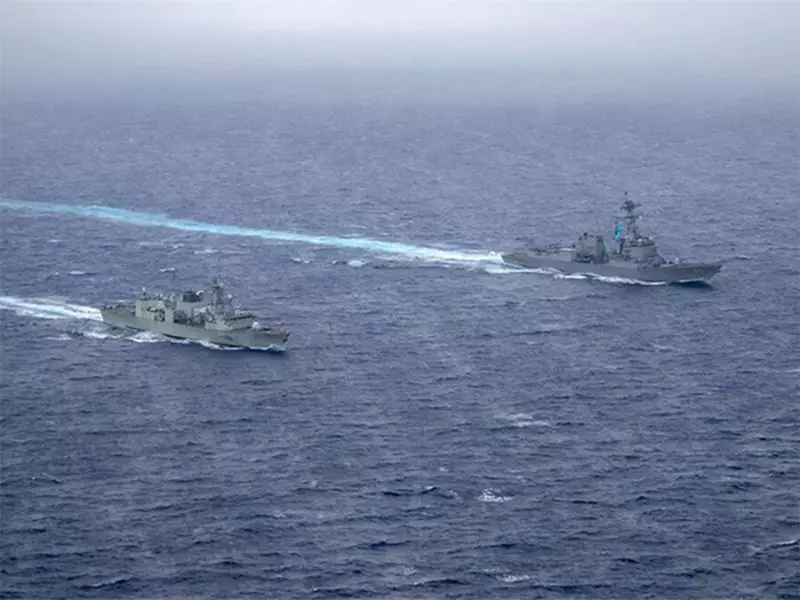
China has launched a sharp diplomatic offensive against the Philippines, condemning its recent joint maritime drills with the United States and Japan in the contested South China Sea. The criticism marks a significant escalation in regional tensions as Beijing reaffirms its territorial claims in the strategically vital waterway.
China's Strong Opposition to Joint Military Exercises
During a regular press briefing on Monday, Chinese Defence Ministry spokesperson Senior Colonel Wu Qian expressed Beijing's firm opposition to the trilateral exercises. Wu specifically criticized the Philippines for what he characterized as "stirring up trouble" in the South China Sea through its military cooperation with external powers.
The senior colonel emphasized that China maintains indisputable sovereignty over islands in the South China Sea and adjacent waters. He warned that such military activities ultimately undermine regional peace and stability, while reaffirming China's commitment to peaceful resolution of disputes through dialogue and consultation.
Details of the Controversial Drills
The joint maritime exercises, conducted recently in the Philippines' exclusive economic zone, involved naval vessels and aircraft from all three participating nations. The drills focused on enhancing interoperability in maritime security, search and rescue operations, and humanitarian assistance scenarios.
Notably, the exercises occurred amid increasing Chinese maritime presence near Philippine-claimed features, including repeated incidents involving Chinese coast guard vessels and Philippine fishing boats. The Philippines has defended the drills as legitimate exercises within its territorial waters aimed at maintaining regional stability.
Broader Regional Implications
This latest diplomatic confrontation occurs against the backdrop of growing strategic competition between China and the United States in the Indo-Pacific region. Washington has been strengthening military partnerships with regional allies, including the Philippines and Japan, as part of its broader strategy to counter Chinese influence.
The South China Sea remains one of the world's most contentious maritime territories, with multiple nations including Vietnam, Malaysia, Brunei, and Taiwan maintaining competing claims. An estimated $3 trillion in ship-borne trade passes through these waters annually, and the area is believed to contain substantial oil and natural gas reserves.
China's increasingly assertive stance in the region has prompted concerned responses from neighboring countries and international observers. The latest verbal confrontation suggests that tensions in the strategic waterway are likely to persist, with potential implications for global trade and regional security dynamics.





